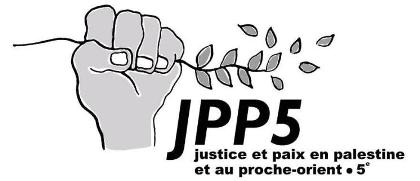9 juillet 2010
5
09
/07
/juillet
/2010
00:45
| No good news from US-Israel talks for Ankara |
 | | US President Obama (R) shakes hands with Israeli Prime Minister Netanyahu in the Oval Office in Washington on Tuesday. | A long-anticipated meeting between US President Barack Obama and Israeli Prime Minister Benjamin Netanyahu appeared to have mended fences between the Obama administration and Israel but produced the sign that the Israeli government could come under pressure from Washington to ease tensions with another US ally, Turkey. |
|
| Turkish analysts suggest the severe deterioration in Turkish-Israeli ties might have been discussed only as a secondary issue during the meeting, following which there was no reference to the Israeli rift with Turkey. Experts speaking to Today's Zaman underlined that after the meeting both leaders did not even explicitly say anything about Jewish settlements and direct talks between Israel and Palestine and that they did not mention Ankara-Tel Aviv relations at all.
The meeting was originally scheduled for the beginning of last month but was canceled by Netanyahu as he went back to Israel following a deadly raid by Israeli commandos on an aid ship trying to break a blockade of Gaza on May 31. Eight Turks and one American were killed on the ship, following which Turkish-Israeli ties deteriorated rapidly. Turkey has since recalled its ambassador to Israel and imposed a ban on Israeli military flights over its airspace.
There were expectations, though slim, that Obama could urge Netanyahu to offer an apology to Turkey, sought by the Turkish government as a basic condition to starting to repair damage done to the relations by the ship raid.
But the message from the Tuesday meeting was that of a reiteration that US-Israeli ties remain strong and unbreakable. There was no information whether the crisis with Turkey was also on the agenda during the closed-door talks, but there was no reference to the issue in official statements made after the meeting.
Their previous meeting in March was not pleasant for Netanyahu, who was not even given a photo-opportunity with Obama due to disputes over Israeli settlement policy. However, this time both leaders underlined the “special ties” between the two countries and voiced hope for direct talks between Israel and Palestine. Obama added that the “US will never ask Israel to do anything that undermines its security.”
When Obama was questioned about Israel’s settlement policies, he did not say explicitly that Israel should extend its moratorium on settlements, which is expiring on Sept. 15. Netanyahu’s far-right coalition partners did not want the extension of the moratorium and, according to analysts, the only way to do it is for Netanyahu to start direct talks with the Palestinians.
Professor Hasan Köni from Galatasaray University said US troops are about to withdraw from Iraq and will try to reduce their numbers in Afghanistan. To succeed in this aim as well as in implementing sanctions on Iran, the US administration needs the support of the Muslim world, which depends on some progress on the Israel-Palestine track. “Second, there are midterm congressional election in November and Obama needs Jewish support.
Meanwhile, there are some reports that Jewish settlements are financed by American groups and that their assistance to the settlements is subject to tax exemptions. This situation is another reason for the pressure on the Obama administration,” Köni said
According to Köni, under these conditions expectations from the meeting were low anyway and that the meeting proceeded as expected. Köni added that Turkish-Israeli ties were most likely on the agenda, but only as a secondary subject. “Obama probably advised Netanyahu to exercise restraint and likely told him that Turkey has some internal problems, so it is better to wait and see,” Köni said.
He added that Israelis have the wrong impression if they believe that, regardless of relations at the political level, military ties will continue. “This is a total misperception, but Israelis have yet to understand this,” he said.
Mustafa Kibaroğlu from Bilkent University said that in some segments of the Turkish political echelons there were hopes that the US administration will realize that it will not be possible to ensure any progress in the Middle East with the existing Israeli government. “But the meeting between Obama and Netanyahu proved that these hopes were unfounded, at least for the time being,” Kibaroğlu told Today’s Zaman.
Kibaroğlu recalled that there was a secret meeting between Turkish Foreign Minister Ahmet Davutoğlu and Israeli Trade Minister Binyamin Ben-Eliezer in Brussels. “Netanyahu knows the importance of Turkey for the US and, before his meeting with Obama, he sent Ben-Eliezer as a special envoy. He did this not only for the sake of saving the Turkish-Israeli ties but to be able to tell Obama that he tried,” Kibaroğlu said.
He added that Obama knows the importance of Turkey but was most likely not aware of how Turkey feels about the flotilla issue.
Soli Özel from Bilgi University said the meeting openly indicates Obama’s surrender to the Jewish lobby. “I don’t think Turkey was a major item on their agenda. They had enough topics to talk about,” he told Today’s Zaman.
|
| |
| |
| AYŞE KARABAT ANKARA |
http://www.todayszaman.com/tz-web/news-215359-102-no-good-news....
Les articles et autres textes publiés ne reflètent pas obligatoirement les opinions du Comité Justice et Paix en Palestine et au Proche-Orient (CJPP5), qui dénie toute responsabilité dans leurs contenus, lesquels n'engagent que leurs auteurs ou leurs traducteurs. Nous sommes attentifs à toute proposition d'ajouts ou de corrections.
Published by CJPP5
-
dans
Regard régional





